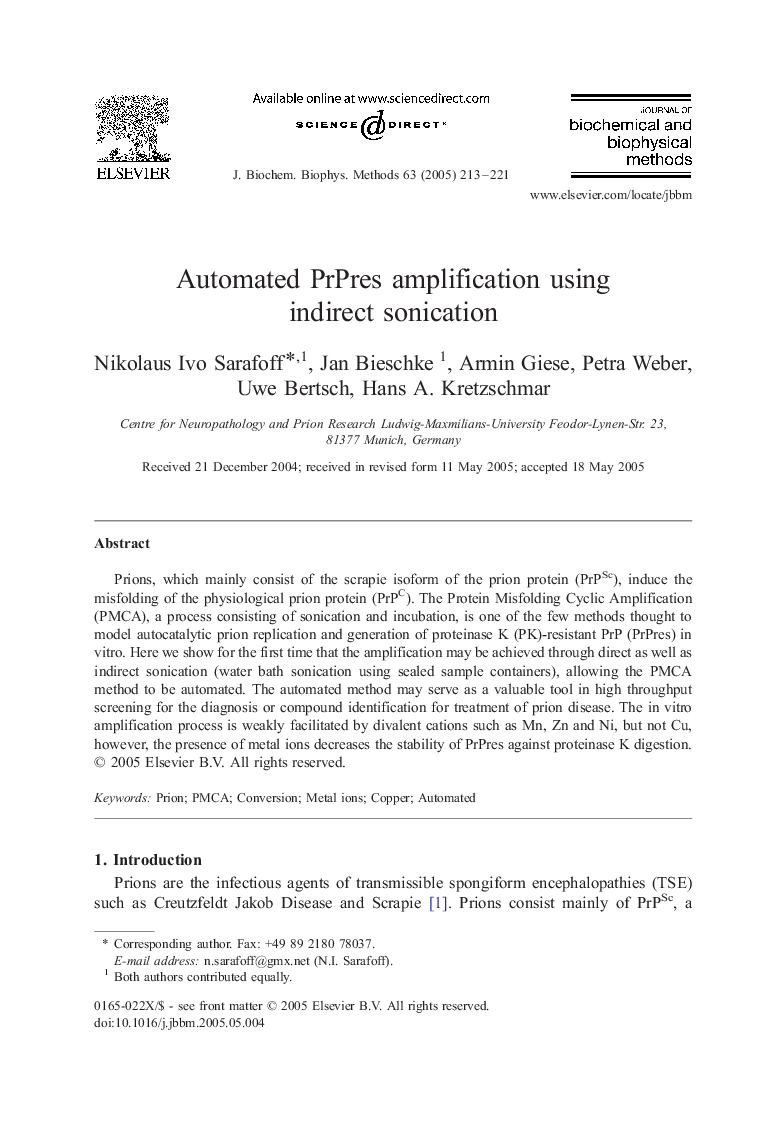| Article ID | Journal | Published Year | Pages | File Type |
|---|---|---|---|---|
| 10825007 | Journal of Biochemical and Biophysical Methods | 2005 | 9 Pages |
Abstract
Prions, which mainly consist of the scrapie isoform of the prion protein (PrPSc), induce the misfolding of the physiological prion protein (PrPC). The Protein Misfolding Cyclic Amplification (PMCA), a process consisting of sonication and incubation, is one of the few methods thought to model autocatalytic prion replication and generation of proteinase K (PK)-resistant PrP (PrPres) in vitro. Here we show for the first time that the amplification may be achieved through direct as well as indirect sonication (water bath sonication using sealed sample containers), allowing the PMCA method to be automated. The automated method may serve as a valuable tool in high throughput screening for the diagnosis or compound identification for treatment of prion disease. The in vitro amplification process is weakly facilitated by divalent cations such as Mn, Zn and Ni, but not Cu, however, the presence of metal ions decreases the stability of PrPres against proteinase K digestion.
Related Topics
Life Sciences
Biochemistry, Genetics and Molecular Biology
Biochemistry
Authors
Nikolaus Ivo Sarafoff, Jan Bieschke, Armin Giese, Petra Weber, Uwe Bertsch, Hans A. Kretzschmar,
